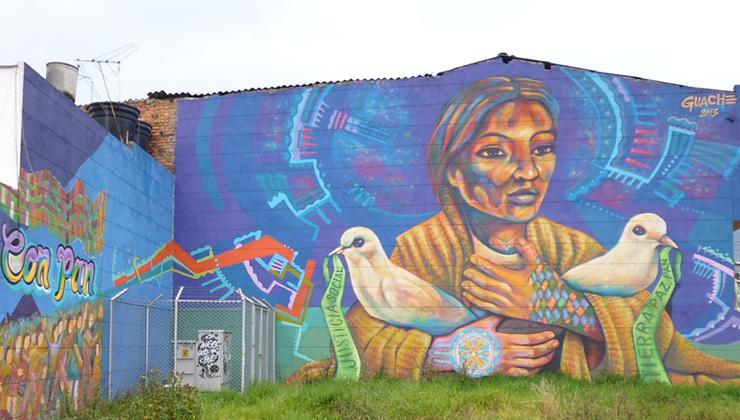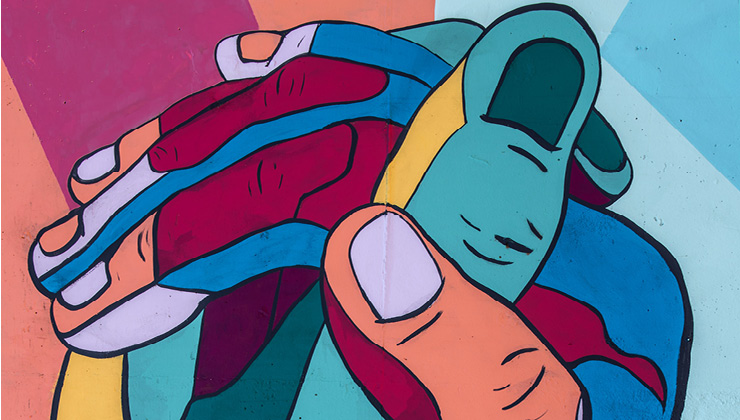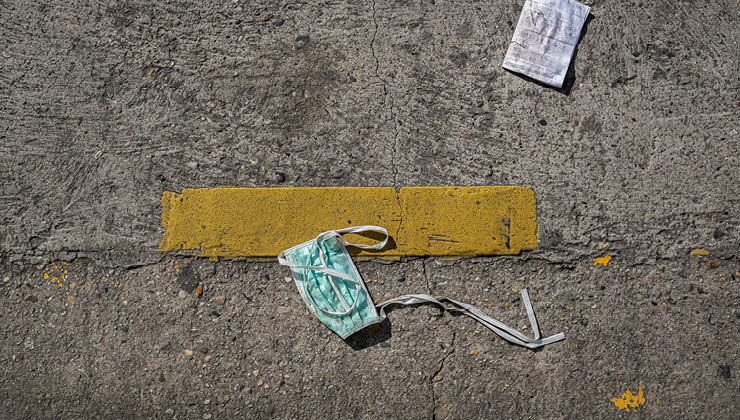The ongoing political, economic and humanitarian crises in Lebanon have had devastating impacts on the livelihoods and wellbeing of Syrian refugees in the country. Now coupled with a mismanaged pandemic, and a period of reconstruction following the Beirut blast, the intersection of these crises have exacerbated already-present inequalities and dire conditions for the country’s refugee communities – and mostly for women and girls.
Now in its tenth year, the Syrian civil war continues to displace millions of Syrian people fleeing protracted conflict and violence. This has caused neighbouring countries such as Lebanon and Jordan (collectively hosting close to 3 million Syrian refugees) to absorb the massive influx of Syrian refugees at the expense of their already-overstretched national infrastructure and social services. Estimates put the number of Syrian refugees in Lebanon at well over 1.5 million, though official numbers and estimates have varied since the registration of Syrian refugees was halted by the UNHCR in 2015 at the request of the Lebanese government.
Covid-19’s impact on an already-weakened public health system in Lebanon, as well as its necessary containment measures including restriction on mobility and nationwide lockdowns, have raised substantial challenges for the humanitarian community in Lebanon to access refugees and ensure they receive the assistance and protection they need.
During the pandemic and a severe economic crisis, relief services in Lebanon have been significantly reduced, and aid programmes have needed to swiftly adapt and re-adjust their delivery methods and activities according to immediate, protracted and unforeseen needs. In already struggling refugee settings, the pandemic and its implications have limited access to basic services and goods, protection, health, education and economic security. It has also highlighted that universal approaches to Covid-19 prevention – such as social distancing, mask wearing, hand washing and sanitation – are often not possible in refugee settings.
The plight of the Syrian refugee community’s women and girls
Syrian refugee women and girls across Lebanon continue to endure prevalent and systemic gender inequality, tainted with diminished access to resources, services, and opportunities, as well as higher risks of violence and abuse. Though understanding gender inequalities among Syrian refugees is vital to improve the gender responsiveness of humanitarian action in Lebanon, as well as the Covid-19 response, this approach has not yet been adopted at a national level.
According to a report by UN Women from 2019, Syrian women are 9% less likely to have a legal residency in Lebanon than their male counterparts and Lebanese sponsorship is very rarely granted to refugee women. Living without legal residency has resulted in insecurity on almost every level, including the right to work, access to formal and informal educational opportunities and healthcare, and has additionally resulted in heightened risk of arrests, arbitrary detention or, in severe cases, deportation.
Syrian refugee women are additionally confronted with the legal restrictions and violations of human rights that their country of origin imposes. As Syrian law does not permit women to pass on the Syrian nationality to their children, Syrian women married or separated from non-Syrian men typically lack legal rights or access to their children – leaving their children at elevated risks of statelessness.
Living without legal residency has resulted in insecurity on almost every level, including the right to work, access to formal and informal educational opportunities and healthcare, and has additionally resulted in heightened risk of arrests, arbitrary detention or, in severe cases, deportation
Refugee and displaced women are at a greater risk of experiencing SGBV throughout their lifetime and the pandemic has heightened this vulnerability. Syrian refugee women report domestic violence, gender-based violence (GBV) and intimate partner violence as a common issue, and insist that incidents are increasing because of the restrictions on movement and the quarantine imposed by the pandemic.
A significant number of women from the Syrian refugee community further state that incidents of GBV are generally not reported, and that a very limited percentage of women from these communities have access to the services and support they need. Access to prevention, response services, mental health support and community support is additionally difficult for women and girls with physical and mental disabilities, who constitute an estimated 21.4% of female Syrian refugees in Lebanon according to UN Women.
A study from 2020 published in BMC Women’s Health highlights that sexual exploitation, trafficking and abuse remains a major concern for Syrian refugee women and girls, and that even local and international aid workers are potential perpetrators. On another note, the reliance on “survival sex” is a prevalent practice amongst Syrian refugee transwomen due to severe legal, social and economic discrimination against them. As the majority of women in the refugee community survive on daily wages, odd jobs and on a non-stable income, Covid-19 has only added to their physical and mental insecurity.
The consequences of Covid-19 on Syrian refugee women carry profound psychological impacts and constraints on their mental health. Exposure to exploitation and being isolated with perpetrators in close quarters is known to result in Major Depressive Disorder (MDD), Post Traumatic Stress Disorder (PTSD), substance abuse, and suicidal tendencies. These mental health constraints consequently pose important social implications across the family and the community, and can lead to discrimination, unwanted pregnancies, stigmatisation, ostracism, and in many instances death threats from the community and family.
Plan International also reports that women and girls from Syrian refugee communities in Lebanon have been left struggling for food and basic necessities such as sanitary pads, as the Covid-19 pandemic unravels in the country amid economic constraints. Plan International additionally found that Syrian refugee girls reported they do not have access to menstrual supplies or hygiene pads, nor can their families afford them amid lockdown and Covid-19 restrictions.
Refugees in Lebanon and the Covid-19 vaccine
Debates about refugees’ access to incoming doses of the Covid-19 vaccine have brought about an entirely new debate in the areas of state responsibility, burden sharing and the role of international organisations and UN agencies in Lebanon. The division of Palestinian refugees and Syrian refugees between the mandates of both UNRWA and UNHCR respectively poses additional needs for inquiry into the shared responsibilities of these two agencies.
As Lebanon continues to grapple through a political stagnation, an economic crisis, a post-Beirut blast reconstruction era, a prolonged humanitarian crisis as well as the Covid-19 pandemic, one can only assume that the intersectional and layered human rights violations of refugee women are not high up on the list of the government’s priorities.
It is pivotal to address the underlying causes of human rights inequalities if a successful and comprehensive Covid-19 response plan is to be set in motion – and ultimately succeed in ticking one object off Lebanon’s long list of challenges as they embark on 2021. Empowering women in conflict settings not only assists with the economic empowerment of their households, but further challenges the social and cultural constructions that place them there.
A comprehensive approach must entail the mobilisation of community-based organisations to provide legal, social, protection, and health services along with governmental bodies. Lobbying international funding agencies to provide urgent, targeted and needs-based financial support that take the complexities and intersections of being a refugee woman in times of financial crisis and a pandemic into account are necessary as well as Lebanon continues to power through another difficult year.
This blog was written with the support of a European Research Council (ERC) grant under the European Union’s Horizon 2020 research and innovation programme (Grant agreement No. 786494).
The views, thoughts and opinions expressed in this blog post are those of the author(s) only, and do not necessarily reflect LSE’s or those of the LSE Centre for Women, Peace and Security.
Image credit: UNHCR/ACNUR Américas (CC BY-NC-SA 4.0)





